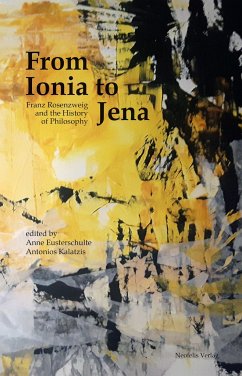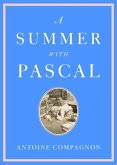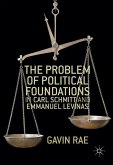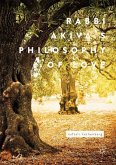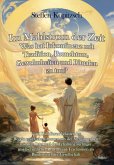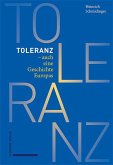Franz Rosenzweig's approach toward the history of philosophy was, if anything, profoundly ambivalent. No other thinker has so often declared the end of the classical metaphysics - from Parmenides to Hegel, from Ionia to Jena - and simultaneously drawn so much from the history of philosophy for his own philosophical project. Kant's critical philosophy, Schelling's conception of radical temporality, Hegel's dialectical method, Schopenhauer's discovery of the individual within the philosophical system, Nietzsche's critique of religion, Kierkegaard's paradox and Hermann Cohen's philosophy of correlation are just a few examples from the history of philosophy that Rosenzweig builds on and integrates into his own system.
What was the common ground that allowed Rosenzweig to unify this vast variety of philosophical insights? Was this process of unification homogeneous and consistent, or did it amount to more eclectic conglomeration of a diverse range of philosophical ideas? Moreover, was Rosenzweig's close connection to the history of philosophy one element that prevented him from radically breaking away from his predecessors? Or did he ultimately manage to integrate it into a truly new and groundbreaking framework? The contributions in this volume explore the dialogue between one of the most innovative thinkers of the first half of the 20th century and his philosophical references. They seek to identify these references and examine how Rosenzweig redefined them in his philosophical project. They do so by searching for the individual reader who drew from all these various influences as well as the universal thinker behind the reader, who systematized all these influences anew.
Hinweis: Dieser Artikel kann nur an eine deutsche Lieferadresse ausgeliefert werden.
What was the common ground that allowed Rosenzweig to unify this vast variety of philosophical insights? Was this process of unification homogeneous and consistent, or did it amount to more eclectic conglomeration of a diverse range of philosophical ideas? Moreover, was Rosenzweig's close connection to the history of philosophy one element that prevented him from radically breaking away from his predecessors? Or did he ultimately manage to integrate it into a truly new and groundbreaking framework? The contributions in this volume explore the dialogue between one of the most innovative thinkers of the first half of the 20th century and his philosophical references. They seek to identify these references and examine how Rosenzweig redefined them in his philosophical project. They do so by searching for the individual reader who drew from all these various influences as well as the universal thinker behind the reader, who systematized all these influences anew.
Hinweis: Dieser Artikel kann nur an eine deutsche Lieferadresse ausgeliefert werden.

